This season’s historic Champions Cup tournament showcased the awesome potential of South African rugby as well as the logistical and financial challenges that continue to hold the nation’s top teams back.
The Bulls, Sharks and Stormers impressed during the early stages of the competition – and combined for an unbeaten record at home – but were outplayed in the knockout matches in Europe. South Africa’s top franchises, as well as the Cheetahs and Lions, have much to address in terms of their tactics and squad management before they can be mentioned in the same breath as European giants such as Leinster or Toulouse.
How far away are they? No less a luminary than Leinster coach Leo Cullen has hailed the introduction of South African teams to tournaments, such as the Champions Cup and United Rugby Championship, and has suggested that they will become a force as they adapt to the European rugby structures over the next few seasons.
Whether these teams have what it takes to progress at the desired rate of their ardent fanbase is another story. Many coaches in the Republic have criticised the debilitating travel arrangements to Europe, as well as the restrictions on squad sizes and salary caps.
The structure of the season remains the biggest problem in South Africa, with local players competing in northern-hemisphere tournaments from September to June, and the Springboks playing Test rugby from July to November. It remains to be seen how and when this ongoing problem – which affects player welfare as well as team performance at club and national level – will be resolved.
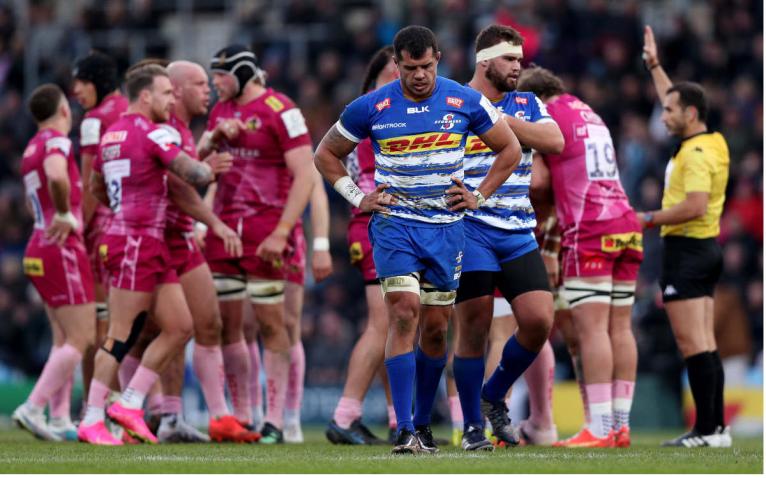
RugbyPass+ spoke to various administrators in order to establish where the sport stands in South Africa, and what it may look like in five to 10 years’ time. All spoke about the positive changes that have been made in the wake of the Covid-19 pandemic, as well as the impact of private equity. Some highlighted the challenges of the structures at home and at World Rugby level, while others lamented the snail-like pace of progress.
ROAD TO EUROPE
Three years ago, the pandemic and resultant travel restrictions plunged South African rugby into a profound financial crisis. At the same time, it provided SA Rugby as well as the individual franchises with a golden opportunity to reassess their structures and to strike out in a bold and more prosperous direction.
Following New Zealand Rugby’s decision to form a new Super Rugby tournament with Australia and the Pacific Islands, SA Rugby pushed forward with its own plans to move the Bulls, Lions, Sharks and Stormers into the newly enlarged United Rugby Championship (URC) in Europe. In 2022, the Bulls, Sharks and Stormers qualified for the Champions Cup while the Cheetahs and Lions were included in the European Challenge Cup.
Over the course of this three-year period, plans to strengthen the business arm of the mother body and that of the individual franchises have gathered momentum. SA Rugby is close to finalising a deal with CVC Capital Partners, the equity fund that has already purchased stakes in the Six Nations (14%), the URC (28%) and the English Premiership (27%).
Initially it was hoped that a partnership with CVC would guarantee SA Rugby and the Springboks a seat at the Six Nations table. A recent report in the British media, however, suggests that World Rugby is set to implement a “world league” structure from the 2026 season, and that the Six Nations will be ring-fenced.
Nevertheless, the current situation is far from perfect, and South Africa has reached a crossroads.
CLIMBING OUT OF THE FINANCIAL HOLE
SA Rugby president Mark Alexander details the financial impact of the pandemic, and how the union as well as the franchises are still clawing their way back.
“To use a rugby term, the Covid-19 pandemic spear-tackled rugby in South Africa,” Alexander says. “Its arrival could not have been more cruelly timed to devastate the sport’s finances.”
The Covid-19 travel restrictions resulted in the 2021 British & Irish Lions tour playing out in front of empty stadiums, and an approximate R600m loss in revenue. The collapse of Super Rugby caused a half a billion-rand swing in SA Rugby’s operational costs, and the Springboks and South Africa’s professional teams did not play in front of full stadiums for two years.
Alexander is confident that the pivot to the URC and Champions Cup tournaments may improve the situation in the long term. That said, he alluded to the cost of sending teams to and from Europe – via the Middle East – as one of the biggest challenges.
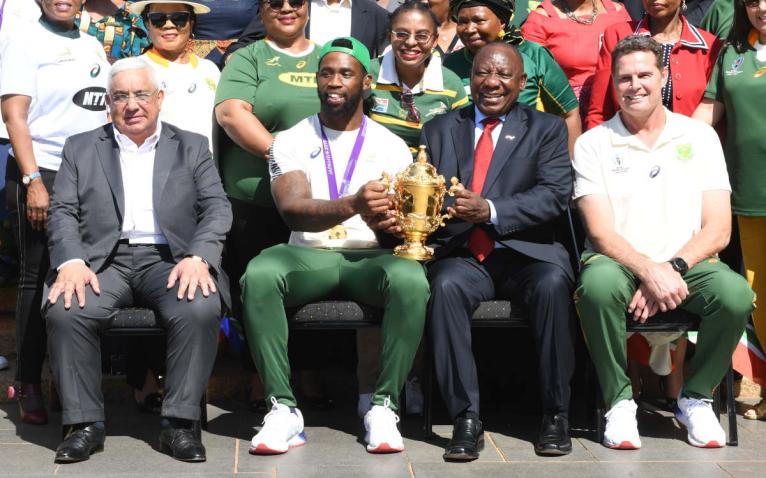
“Not only has our income been severely mauled at different points and for different reasons over the past three years, but our expenses have also ballooned.
“The travel costs of playing in northern-hemisphere competitions have probably increased threefold from where they were when we first contemplated making what has been a seismic shift in 2020. The cost to SA Rugby of flying franchises to Europe is between R35m and R40m per year whereas the equivalent team travel costs in Super Rugby were covered by Sanzaar pre-pandemic.
“In addition, we are buying a shareholding in the United Rugby Championship and European Professional Club Rugby,” Alexander confirms. “From being a net recipient of income from Super Rugby in 2019, we are now subscribing to the two European competitions which has meant a half billion swing in our annual P&L.
“There is no doubt in my mind that the move has been the right one; it was almost the only one available to us other than playing purely domestic rugby. But it is causing extreme financial pain as we move towards shareholding.
FERTILE GROUND FOR SEEDS OF PRIVATE EQUITY
The marquee franchises have benefitted from a private equity injection – or at least explored the idea – in recent years. Mining magnate Patrice Motsepe and business tycoon Johann Rupert own a controlling stake in the Bulls, while Altmann Allers, the CEO of Glasfit and Digicall, is the majority shareholder at the Lions. In 2021, the American consortium MVM Holdings invested in the Sharks after a potential deal with the Stormers was stalled by the amateur arm of the Western Province Rugby Football Union.
Unsurprisingly, the Stormers went into administration later that year. Thanks to the intervention by SA Rugby, the Stormers have stabilised and made steady progress on and off the field. After winning the 2021-22 URC tournament, they have performed consistently across the current season and remain on track to host another URC play-off. Perhaps most importantly, they are in talks with another potential equity partner.
While they may differ on specific matters, SA Rugby and the individual franchises agree that the move from Super Rugby to the URC and Champions Cup was necessary, and that it has the potential to benefit all who are involved. The input of equity partners should usher South African teams – who have been at the mercy of self-serving and short-sighted amateur boards for too long – into a more professional and lucrative future.
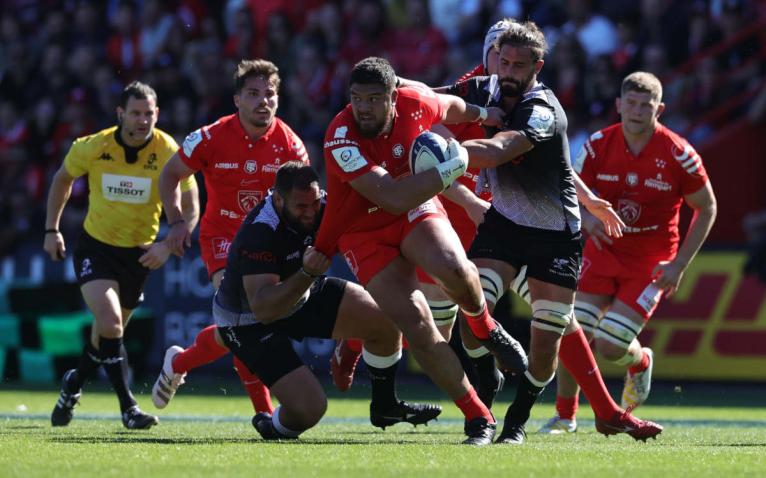
“You can’t be a professional team without the assistance of private equity, certainly not in South Africa,” says Bulls CEO Edgar Rathbone. “The funding model in South African rugby is such that all of the money is divided equally among the 14 provincial unions, so you are only getting a small piece of that pie.”
A quick look at the star-studded Bulls squad – and indeed a coaching team that includes World Cup-winner Jake White – confirms that the Pretoria-based franchise has the means to secure some of the biggest names in the game. They recently recruited England lock Charlie Ewels on a short-term deal, beating the cash-strapped Stormers to the signing.
Rathbone points out that the equity partners have added a lot more than a simple cash injection over the past four years.
“Private equity has multiple benefits, in that it gives a union access to experienced businessmen with strong business acumen. Your entire board takes on a different dynamic, and suddenly you’re looking at a proper business. There’s a strong divide between the amateur and professional arms, and that is mutually beneficial.”
Like the other top franchises, the Bulls have looked to maximise a move to the northern hemisphere and the exposure to European market.
“It’s still early days, but we’ve seen a significant rise in sponsorship revenue,” Rathbone says. “That could be partially attributed to the team’s performance in recent years [the Bulls won three domestic tournaments, featured in the 2021-22 URC final, and qualified for this season’s Champions Cup] but has a lot to do with how the games are all broadcast in a similar time slot – as opposed to the olds days, where we had Super Rugby games shown in the early morning here in South Africa. There is a lot more exposure to the European market, and that benefits more companies here in South Africa who also do business in Europe.”
GLOBAL SEASON COULD END CLUB V COUNTRY BATTLE
Since MVM aligned with the Sharks in early 2021, the Durban-based franchise has signed some of the best players in the sport. World Cup-winners Siya Kolisi and Bongi Mbonambi swapped the struggling Stormers for the more ambitious Sharks in 2021, while Eben Etzebeth – who was recently named SA Rugby Player of the Year – was lured back from France in 2022.
Sharks CEO Eduard Coetzee prefers to talk about private equity in the context of financial and commercial opportunities. He is quick to credit Marco Masotti, the head of the MVM consortium, and others for the impact they have made at the Durban franchise over the past two years, and the platform that has been laid for seasons to come.
Masotti himself has mixed feelings about the future.
Speaking from his New York office, the Amanzimtoti-born businessman retells the story of how he moved to the USA to further his legal career in the 1990s, and went on to work with powerful clients who owned elite sporting franchises like the Florida Panthers and the Milwaukee Bucks. As a rugby-mad South African, he started to wonder if the time was right to invest in a local franchise. When the Stormers deal fell through, MVM managed to strike a deal with the team Masotti supported as a boy.
“I’m in it for the long run,” he says. “There’s a narrative in South Africa that we’re just looking to buy big name players without doing much development, which simply isn’t true.
“I want us to win trophies, and I can see us lifting the Champions Cup in the next few years. Having said that I’d also like a lot more control, in terms of access to players and a move towards a global season. The current scenario is frustrating, and I think all the franchises are in the same boat.”
Masotti and others believe that more can be done to strengthen the relationship between the respective equity partners of the franchises and the chief decision-makers at SA Rugby. The current structure of the season – which forces South African players who represent local clubs as well as the Boks to compete 12 months a year – is proving problematic.
SA Rugby and MyPlayers, the players organisation, has moved to mitigate the situation by introducing a game cap of 32 matches as well as a eight-week rest period. That has compromised teams like the Bulls and Sharks, who have been forced to rest their Boks and field weakened teams at key stages of the club season. As things stand, there is no dedicated off-season for players to recharge their batteries.
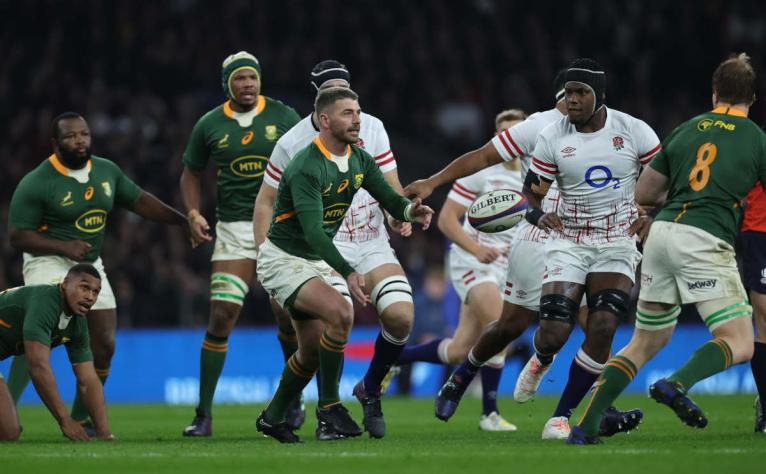
The situation has been further exacerbated by the travel schedule. Alexander highlighted the financial implications of sending top franchises to Europe on a regular basis. The toll on players who fly from South Africa to Doha and then on to Europe – often in economy class – should not be underestimated.
It’s a recipe for underachievement on a number of fronts, as fatigued players are unlikely to perform at optimum level, and underperforming teams are unlikely to win matches consistently. The tournament – be it the URC or the Champions Cup – suffers when players are not in a position to give of their best in every game.
Some have called for larger squads, and a raising of the salary cap, which is set at R67.2m for 2023. Fifty players may be contracted by the top franchises. It’s a big ask, considering teams like the Bulls, Lions, Sharks and Stormers compete in three competitions – the Champions Cup or European Challenge Cup, the URC, and the Currie Cup – over the course of a season.
“It’s tough when your international players are competing from July to November, and then having to rest during competitions like the URC,” says Rathbone.
“The salary cap is a big challenge. We’d like to have more big names involved in our team, but are limited by the cap. There has been a lot of interest recently from players at European clubs who are looking to move back to South Africa. A change to the cap would be a great help. At the moment, it’s tough competing across three different competitions with what we have.
“When the private equity deal goes through, and SA Rugby becomes a shareholder with the EPCR, we may see more direct revenue coming into the teams,” Rathbone adds. “That will put us on a more solid financial footing, and we will be in a stronger position to grow.”
White has stated that more should be done to prevent the ongoing player exodus. As it stands, more than half of the current Bok squad represents overseas clubs, and upwards of 400 South African players compete in leagues across the globe.
“The exodus of players to Europe has diluted the product,” says Coetzee.
“I don’t want to be a hypocrite, as I went to Biarritz in France when I was a player,” the former Sharks prop adds. “But maybe there could be a stricter limit on players selected by overseas clubs. That would help the situation in SA. Maybe we can get more money into the local franchises that will allow us to keep more marquee players at home.”
ON THE RIGHT PATH
Despite all the challenges, Alexander is adamant that SA Rugby is on the right path and that the next few years could bring unprecedented success for the governing body and the franchises.
“Support for the Springboks is widespread and probably has never been higher; the move north has brought instant success and the crowds are not just returning to pre-Covid levels but are also edging higher,” the SA Rugby president says.
“We have emerged from Covid with a renewed focus around the women’s game – although fuelling that energy remains a major challenge – and when it comes to playing resources in general, we have money in the bank. Converting that into cash right now is what we need to do as we complete our subscription to the northern hemisphere competitions. Once that is achieved, we’ll be able to do what we intended to do pre-Covid, by building our reserves and re-capitalising our operations with income that we had expected to come from the Lions tour.”
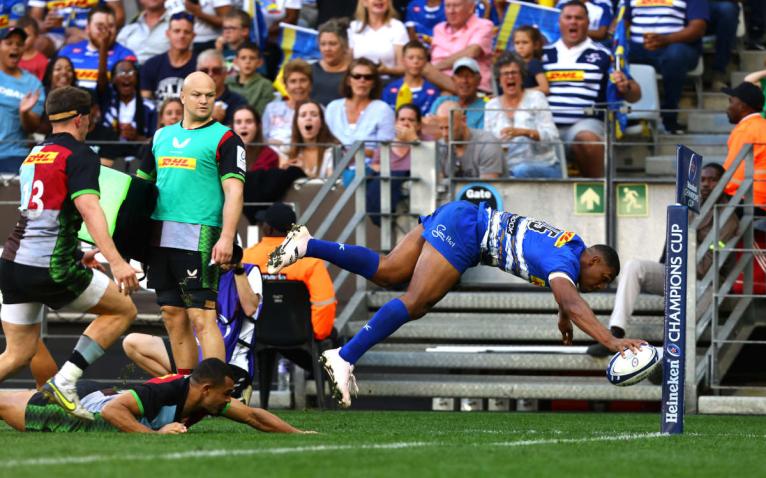
South African rugby may have enjoyed a promising start to its European adventure, but the decisions taken by key role players over the next few months will determine whether the franchises grow or stagnate in future.
If the much-anticipated deal with CVC is concluded, and if the South African season is better aligned to boost player welfare and performance, then the better teams may well fulfil Cullen’s prophecy and warrant comparisons to Leinster and the like in the years to come.



The way I see it, SA are the problem - how can they participate in comps that involve weekly travel to and from the Republic. Whether it be super rugby or Europe it’s the same problem - long haul flights to play against well rested opposition. There is no answer - SH rugby is on the cusp of dying a slow death - you can sugar coat it all you like but the reality is geographically the Saffas are an outpost - they may as well play on the Moon and Mars and play the final on Saturn